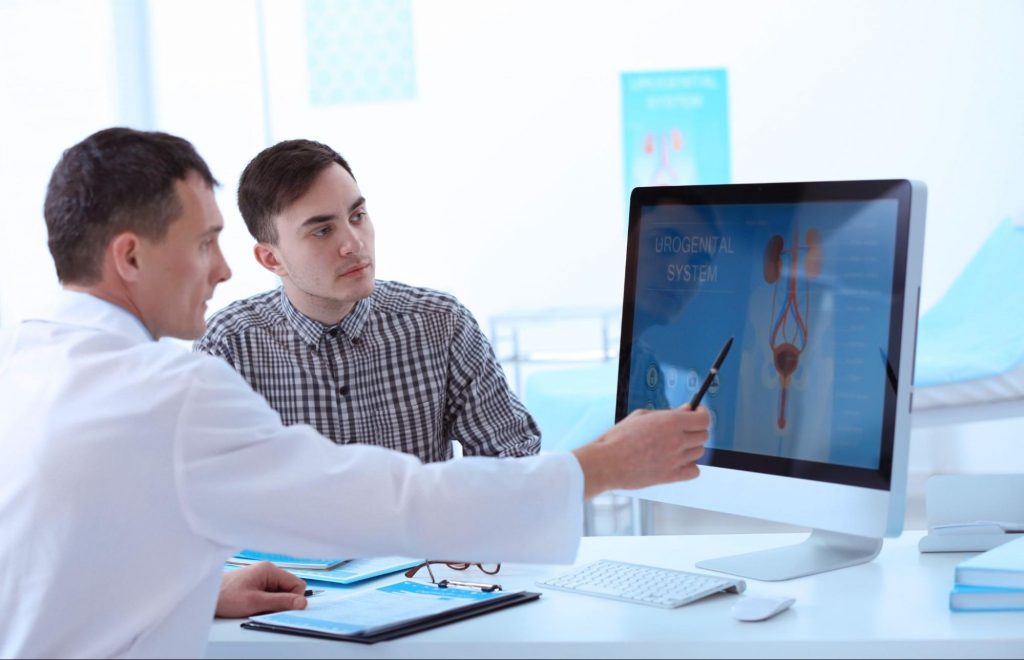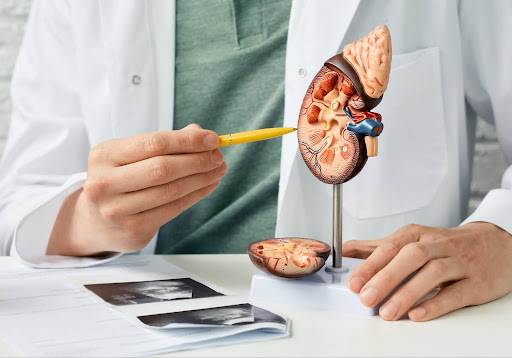
Many of the subjects that urologists specialize in, including bladder problems, erectile dysfunction, and UTIs, have certain stigmas that surround them, making them less likely to be discussed. Keeping these topics under wraps makes it a lot easier for misinformation to spread, leading to various widely believed myths about urology. At Alliance Urology Specialists, we hear these myths all the time, which is why we wanted to take a moment to provide you with accurate information, and to set the record straight about some of the most common myths about urology.
Urologists Only Treat Men
Urologists are sometimes viewed as counterparts of OB/GYNs, but this is incorrect. While OB/GYN doctors focus solely on women’s health, urologists have both male and female patients. Urologists specialize in the genitourinary tract, including the kidneys, urinary bladder, adrenal glands, and urethra, all of which men and women have. While urologists also specialize in the male reproductive organs and male fertility, they are not limited to these areas of the body. At Alliance Urology, we have an entire set of services that can help treat conditions that commonly affect women, including bladder disorders and issues relating to pelvic health.
Bladder Issues are Normal
Bladder issues, including incontinence and increased urgency, are often regarded as a normal part of aging. Because of this commonly held misconception, those suffering from bladder disorders usually do not seek treatment. While age is a risk factor for developing bladder problems, it is time to seek treatment if urinary symptoms disrupt your quality of life. Accepting bladder problems as a normal part of life is one of the most popular myths about urology, so if you are suffering from bladder disorder symptoms, schedule an appointment with a specialist at Alliance Urology.
Everyone Needs to Consume the Same Amount of Water
You have probably heard of a standard suggested amount of water consumption per day, but this recommendation is not as “one-size-fits-all” as you may have come to expect. Many factors impact your water intake, including your gender, weight, activity level, and more. Suggested water consumption can also vary if you have been diagnosed with a health condition, including bladder disorders. Your doctor can provide a more personalized water intake suggestion, but some good general advice is to drink water when you’re thirsty and to maintain clear urine.
All Prostate Cancer is Slow Growing
Misconceptions pertaining to prostate cancer can be some of the most dangerous myths about urology. While it is true that some cases of prostate cancer progress so slowly that treatment is not necessary, it’s important to keep in mind that each case of prostate cancer is unique. In some cases, prostate cancer can be aggressive and will require active surveillance and treatment. Ultimately, prostate cancer is the second leading cause of cancer deaths in American men, so it’s important to know your risk factors.
Only Older Men Need to Go to a Urologist
While age is a risk factor for many conditions treated by a urologist, including erectile dysfunction, bladder disorders, and enlarged prostates, these conditions do not exclusively affect older men. Other problems such as kidney stones, cancers, and even congenital defects can surface at any age. Urologists are the best equipped to manage these as well.
Make an Appointment
For questions about the male reproductive system or to schedule a service with one of our providers, contact Alliance Urology Specialists today. Our team has years of experience treating issues pertaining to the urinary tract, male infertility, pelvic floor dysfunction, and more. Alliance Urology Specialists offers a wide array of treatments and in-office procedures, including vasectomy. If you need to clarify any myths about urology, have any other questions about our services, and would like to make an appointment, please call our office in Greensboro at (336) 274-1114.

